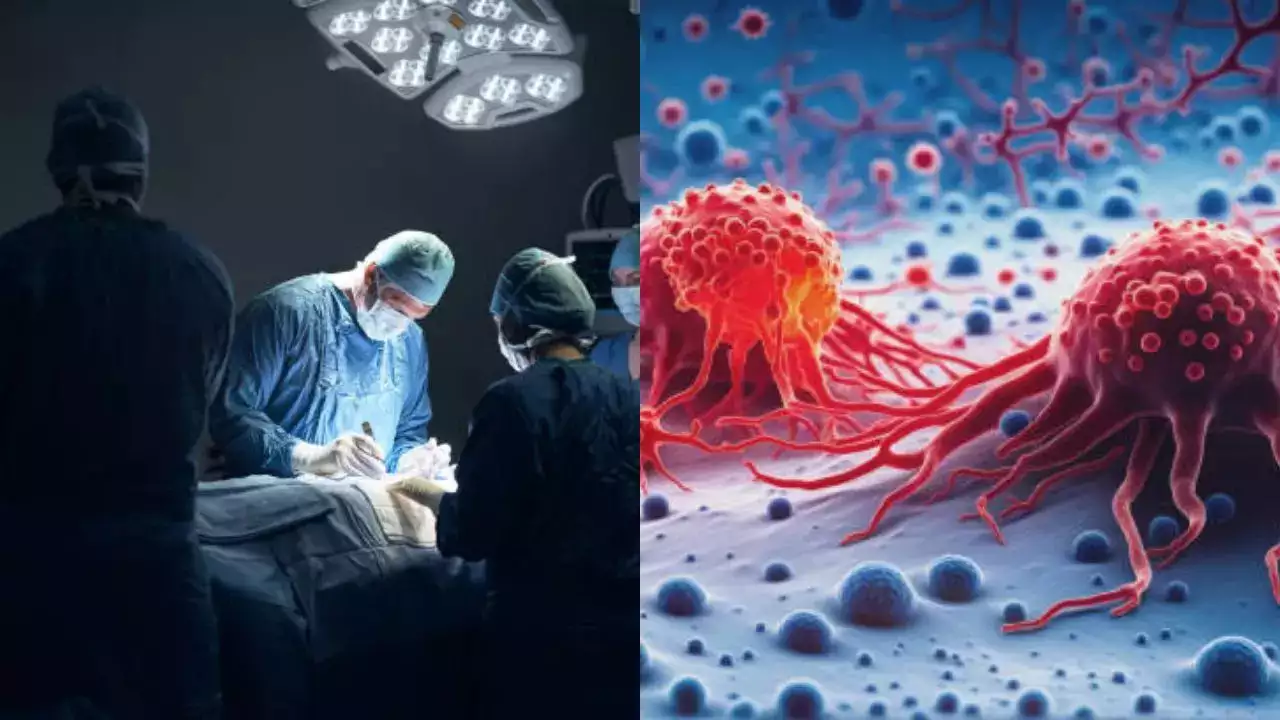
The investigation into the tumour found that it was genetically identical to cancer suffered by the doctor’s former patient
In a bizarre case, a doctor operating on a cancer patient accidentally 'transplanted' the dreaded disease into himself—in what is believed to be a one-of-a-kind event. According to news reports, a 32-year-old man from Germany was diagnosed with a rare type of cancer and undergoing surgery to get the tumour removed from his stomach.
While in the surgery, the doctor performing the fibrous histiocytoma procedure accidentally cut his hand. Reports say the wound was disinfected and bandaged immediately. While the cancer patient's initial surgery was successful, he died following complications after the procedure. However, a few months later, the 57-year-old doctor noticed a small lump, around 1.2 inches, at the site of the injury, which, after tests, was diagnosed to be a malignant tumour.
According to the Daily Mail, the investigation into the tumour found that it was genetically identical to cancer suffered by the doctor’s former patient. This led the medical team who treated the doctor to conclude he had caught cancer when tumour cells entered the cut on his hand.
The doctor’s body had an ineffective anti-tumour immune response
This rare medical case, published in the New England Journal of Medicine, was originally reported in 1996 but has recently resurfaced.
The medical fraternity has called this a usual situation because in a traditional transplant, the body mounts an immune response and rejects any foreign tissue—as was expected in the surgeon’s case. However, given the tumour's development and growth, experts say the doctor’s body had an 'ineffective anti-tumour immune response.'
Researchers said since both the doctor and his patient had the same types of cells and arrangements, it meant the surgeon may have unknowingly transferred cancer cells from the patient to the cut in his hand, allowing the disease to take root and grow in his body. “Normally, transplantation of allogeneic tissue from one person to another induces an immune response that leads to the rejection of the transplanted tissue. In the case of the surgeon, an intense inflammatory reaction developed in the tissue surrounding the tumour, but the tumour mass increased, suggesting an ineffective anti-tumour immune response,” the authors wrote in their report in the journal.
The authors also speculated the tumour 'escaped immunologic destruction through several mechanisms,' including changes to molecules in its cells and a failure in the surgeon's body to recognize and attack tumour cells effectively.
Two years after the surgeon had his tumour removed, there were no signs the cancer had spread or returned.
No other such cases have been recorded
Experts say no other such cases like the surgeon's have been recorded and there are no statistics on 'transplanted' cancer. In a 2013 study of such cases published in the Cold Spring Harbor Perspectives in Medicine, experts state that there is no estimation of risk for transmitting cancer from donor to recipient and there is limited data on the subject. “The incidence of any cancer transmission is so low that sporadic case reports are the main source of information,” the report read.
An earlier review in the 90s also looked at extensive data, which found that there were only sporadic reports of cancer being transmitted through organ donation. However, the authors continued, the data is 'highly likely to underestimate the true incidence.'
Using the limited data available, the authors of the 2013 report found cancers known to have been transmitted from donor to recipient on at least one occasion, including breast cancer, colon cancer, liver cancer, lung cancer, melanoma, ovarian cancer, prostate cancer, and renal cancer.
Get Latest News Live on Times Now along with Breaking News and Top Headlines from Health and around the world.
